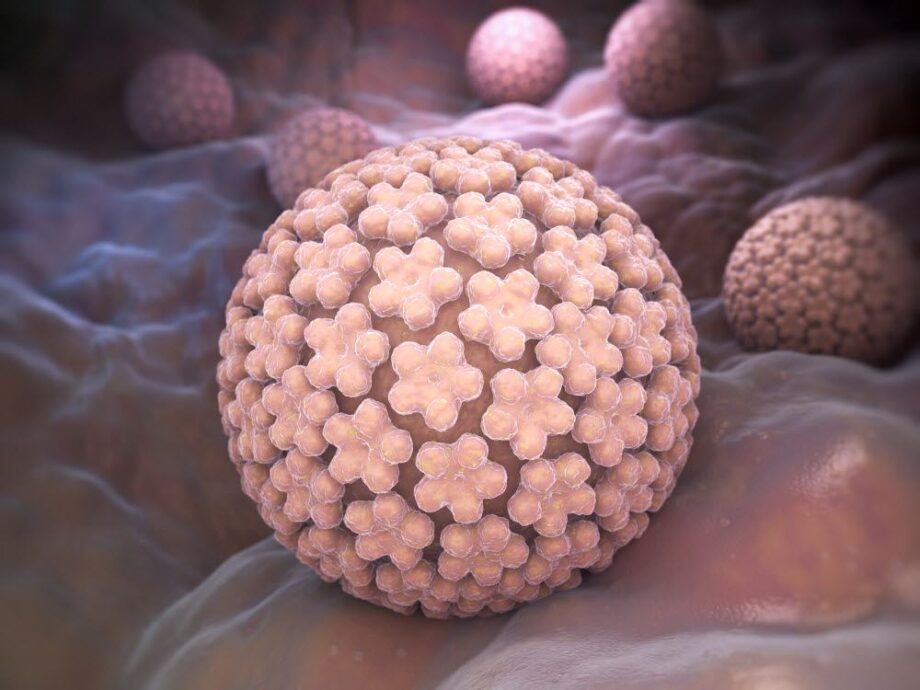The first time I ever heard of genital warts was in an article in a women’s magazine in the late '90s. It spoke of a young woman who, after one sexual experience with a cruel partner who told her nothing about the status he obviously new about, developed genital warts and, according to this incredibly helpful and not at all sensationalist (can you hear my sarcasm?) article would now have it FOR LIFE! I got it in my head at that moment that genital warts were one of the worst things that could happen to someone.
Years later, the medical community has learned so much more about human papilloma virus (HPV) - the cause of genital warts. HPV is the most common sexually transmitted infection. It is passed on through genital contact, most often during vaginal and anal sex. HPV may also be passed on during oral sex and genital-to-genital contact, even when the infected partner has no signs or symptoms.
Maybe you didn't know that. Maybe there's a lot more you don't know about HPV. Here we'll separate fact from fiction when it comes to this incredibly common STI.
HPV Fiction: Once you have it you have it for life
FACT: Most people will have HPV at some time in their lives. For a lot of people, it causes no symptoms and goes away on its own. That’s right; it can come and go without your knowledge. How so? Our bodies are smart. In 90 percent of cases, the immune system will clear the virus all on its own.
HPV Fiction: You’ll know if you have it
FACT: You can have the genital HPV virus and exhibit no symptoms at all. Many people don’t know they are infected when they pass the virus on to a partner. As men function primarily as carriers of the virus and there is no effective test to tell if they have it, they are usually unaware of their status unless they contract a wart-causing strain.
Plus, HPV can be present in your system for years before manifesting symptoms, so it’s possible to have the virus even if years have passed since sexual contact with an infected person. This is how HPV can come and go without an infected person even knowing about it.
HPV Fiction: HPV = Cancer
FACT: There are more than 100 different strains (or types) of HPV, 40 of which are sexually transmitted. Each type of HPV is identified by an assigned number.
Some types of HPV can cause warts, which most commonly occur on the hands and feet, in the genital area and around the anus, but they can be on any part of the body. The types of HPV that cause warts do not usually cause cell changes that may develop into cancer. We call these "low risk HPVs". The types of HPV that can cause warts include types 6, 11, 42, 43 and 44.
Some strains of HPV can cause cellular changes called dysplasia, which increases the risk of cancer in the cervix, mouth or throat. We call these "high risk HPVs." Specific high-risk strains include 16, 18, 31, 33 and 45, with types 16 and 18 causing approximately 70 percent of cervical cancers. The other types cause most of the remaining 30 percent of cervical cancers.
HPV Fiction: Condoms will prevent the spread of HPV
FACT: HPV is spread via skin-to-skin contact, so condoms do not protect they way they do with infections spread via bodily fluids (although they help). Additional barriers like gloves and dental dams can provide additional protection. FC2 condoms for women are another option, because they offer a bit more genital coverage than traditional condoms. Also, if you are eligible for them, HPV vaccines can offer protection against certain strains of the virus. (Female condoms aren't on everyone's radar. Learn more about them in 8 Things You Don't Know About Female Condoms.)
Fiction: An HPV diagnosis is something to be embarrassed about
FACT: First and foremost, don’t allow any STI diagnosis to make you feel embarrassment or shame. Sex educator Ashley Manta has produced some wonderful videos about dealing with the feelings that come up after the diagnosis of an STD. (You should also check out Honey, I Have Herpes.)
Finally, know that it’s not just you. A friend recently told me about giving her history to a new (and awesomely sex-positive) doctor and saying, "Oh, I forgot to put down that I’ve had HPV!! Is that a problem?" While making his notes, the doctor responded, "No, because really, who hasn’t?"
HPV is incredibly common. How common? So common that most sexually-active men and women will get at least one type of HPV at some point in their lives. In fact, around 79 million Americans are infected with HPV right now, while 14 million people become newly infected every year. HPV is the most common STI. It’s definitely not just you.
So that's HPV. In many cases, it's nothing to worry about. And it's never anything to be ashamed about. Practice safer sex, visit your doctor if you have concerns about HPV and, for women, have a regular pap smear if you're sexually active. Oh, and the best way to protect yourself? Learn the facts.




